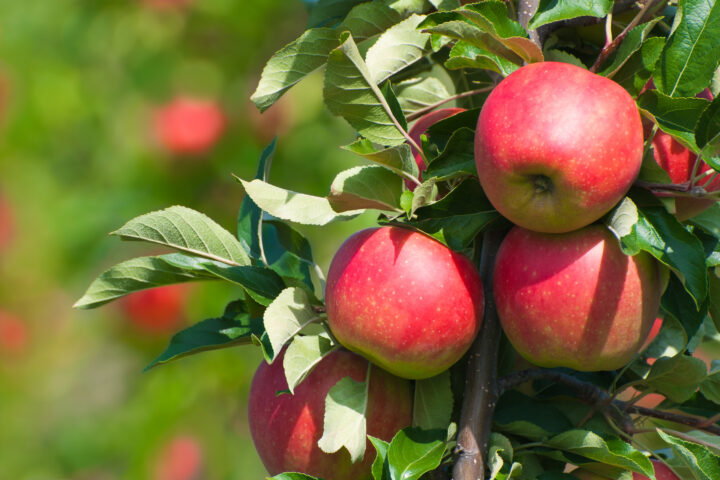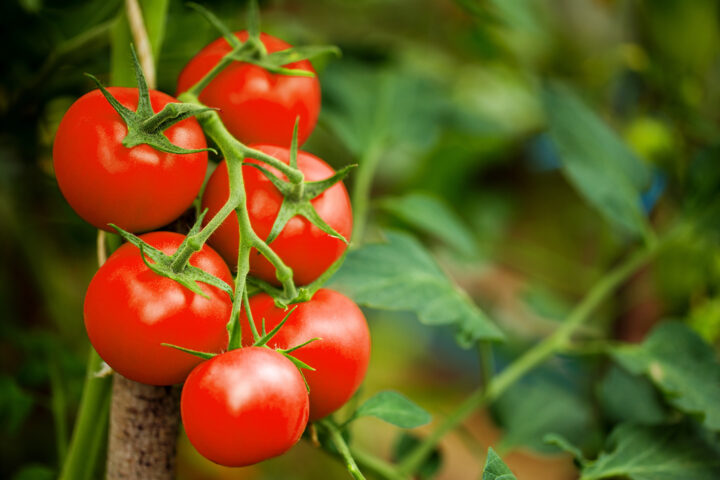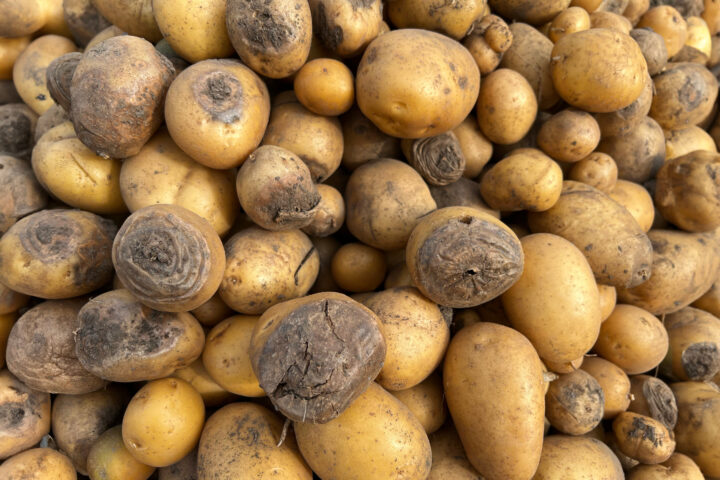
EU decision in favour of new breeding methods with stumbling blocks
On 7 February, the EU Parliament voted in favour of approving the new genomic breeding methods in the EU. MEPs voted in favour of a corresponding proposal by 307 votes to 263 with 41 abstentions. Further deliberations will now follow.
Monday, February 12, 2024
The decision is an important step towards a modern EU-wide authorisation regime for plants that have been bred using new breeding technologies (genome editing). However, the debate in Parliament has shown that opposition to modern agriculture remains unbroken. Over 250 individual motions were tabled in response to the Commission's proposal, which in itself was a good one. The aim of this political manoeuvre is clear: the proposal is to be overloaded with additional requirements and restrictions and thus rendered useless in practice.
This has already worked once in the past, namely during the consultations on the Genetic Engineering Act for transgenic plants. In contrast to Switzerland, these are not subject to a moratorium in the EU, and yet in practice they only have a niche existence in European agriculture due to the extreme requirements for authorisation, coexistence, labelling, monitoring and separate flows of goods. For example, transgenic Mon810 maize is grown for animal feed in Spain. In fact, however, cultivation is made impossible in most EU countries due to the overly numerous requirements.
On 7 February 2024, Parliament adopted several of these proposals, which will be stumbling blocks for the successful establishment of new breeding methods if they remain in place until the end of the political process: for example, a declaration obligation for end consumers, monitoring of the environmental impact of plants bred using new technologies and, above all, a ban on all patents relating to genomic techniques to produce plants. It is a bad sign for Europe as a centre of innovation if patents are restricted as a condition for commercial research - this would then have to continue to take place outside the EU. The EU Parliament has thus fallen for the common NGO narrative of «no patents on seeds», because contrary to this narrative, patents do not restrict normal breeding: no plant species or varieties can be patented, only man-made technical inventions. In the case of plants, for example, these are clearly defined new genetic characteristics that have been created by technical means ("in the laboratory") and which must be inventive and unique when measured against the state of the art. What simply occurs in nature is never patentable. So why should patents on such technical inventions be treated differently than in other business areas?
A stage victory for science
However, the opposition's approach of making broad authorisation more difficult through excessive regulation also shows that it has lost the intellectual-scientific debate on the subject. For years, if not decades, the doubters dominated the public and political discourse. The precautionary principle was always invoked in the discussions about the opportunities and risks of green genetic engineering, thereby blocking all innovations in this area. With the EU Parliament's decision, this defence has suffered more than just minor cracks. EU policy must now stay on course in order to decide on a practical authorisation that is as lean as possible.
Research has undoubtedly played a major role in this almost historic decision by Parliament. Despite the difficult environment, it has made great progress in the field of breeding techniques in recent years. The fact that it is now possible to modify plants quickly and in a targeted manner so that they can adapt better to changing environmental conditions is a small scientific revolution. However, the progress made in research would have been lost in the laboratories if scientists had not also become convincing ambassadors for this new technology. The public debates on the risks and opportunities of new genomic approaches have shown that the scientific evidence has prevailed in wide circles of the European public. The open letter from over 1,500 scientists, including 35 Nobel Prize winners, to the EU Parliament is likely to have had an additional impact.
Switzerland will also be setting the course for 2024
The fear campaigns of opponents, who have been unable to counter this from a scientific perspective, are becoming less and less effective. The latest decision by the EU Parliament clearly shows this. The current protests by farmers in numerous European countries are also likely to have made many parliamentarians realise that farmers need new solutions so that they can continue to produce sufficient and affordable food in the future. It is to be hoped that the Council of the European Union will follow Parliament and the Commission in principle and also support the authorisation of new breeding technologies. However, it is also clear that agriculture in the EU can only rely on forward-looking plants if the restrictions imposed by the EU Parliament are removed.
Meanwhile, the Swiss government would do well to keep a close eye on developments in the EU. By mid-2024, the Federal Council must also present a proposal outlining the authorisation of new breeding technologies in this country. If the EU regulates before then and, above all, in a streamlined manner, it would make sense to follow suit. If the EU does not reach a final position until after the EU elections in June 2024, Switzerland could lead the way with a pragmatic authorisation practice and thus indirectly serve as a role model for EU legislation. In this case, Switzerland leading the way would also be important for the local research and start-up landscape, as the UK has been on its way to becoming a leader in agricultural and food research since liberalisation, a position occupied by the USA and China. In any case, 2024 will be a fateful year for the future of agriculture in Europe and Switzerland - and a touchstone for the repeated declaration of intent to bring «essential industries» (back) to our continent. It remains to be hoped that the fundamental approval of the new breeding methods will now be followed by practical, business-friendly implementation.
What are the benefits of the new breeding technologies for Swiss agriculture?
The Swiss Academy of Sciences (SCNAT) presents specific examples of applications of genome-edited crops from breeding research that are of interest to Swiss agriculture. The scientific community is unanimous: genome editing is an opportunity for Switzerland. You can download a detailed brochure here.
Kindly note:
We, a non-native editorial team value clear and faultless communication. At times we have to prioritize speed over perfection, utilizing tools, that are still learning.
We are deepL sorry for any observed stylistic or spelling errors.
Related articles

New breeding methods – here to stay
The Swiss Parliament has decided to update the genetic engineering moratorium that has been in place since 2005. The step was overdue. On the occasion of a webinar organized by swiss-food.ch, experts from science and agriculture spoke about the benefits of new biotechnological breeding methods. It became clear: the risks are low, the opportunities are great.

Science demonstrates the concrete benefits of new breeding methods
The Swiss Academy of Sciences (SCNAT) recognizes the significant opportunities offered by new breeding methods. In a new dossier, the Academy presents five examples of crops cultivated using genome editing, which have high potential for Swiss agriculture. This publication emphasizes the scientific consensus on the use of genetic scissors. The new breeding methods offer numerous advantages for the environment and agriculture.

Broad alliance for modern breeding methods
The signal effect could not be greater. The label organization IP-Suisse, the fruit, vegetable and potato producers, the agricultural cooperative Fenaco, the large retailers Coop and Migros and the consumer forum have recently joined forces under the name "Varieties for tomorrow".

Assess scientifically instead of banning indiscriminately
The debate surrounding PFAS is gaining momentum in Switzerland. At its core are questions about potential risks to human health and the environment, as well as future regulatory approaches. A differentiated, science-based approach is essential – as emphasised by scienceindustries in a short interview with Dominique Werner, Head of Chemicals Regulation.

Faster Approval of Crop Protection Products Long Overdue
Switzerland diligently bans active substances that have also been withdrawn from the market in the EU. Conversely, it is dragging its feet: modern products that are approved in neighboring countries remain blocked. With the adoption of the amendment to the Agriculture Act, the National Council has now taken an important step toward faster approval of plant protection products.

Differing perceptions
While the increasing administrative burden is perceived as the main concern in the economy, parts of the population see it differently. Meanwhile, regulations are repeatedly misused as a means of exerting power in the competitive struggle – to the detriment of SMEs.

Domestic production as a blind spot
Switzerland's food security is increasingly under pressure: last year's disastrous wheat and potato harvests have led to an increasing dependence on imports. However, the report by the Federal Office for National Economic Supply (FONES) is largely silent on the precarious state of the domestic agricultural sector. The IG BauernUnternehmen (Farmers' Company) has therefore sharply criticised the federal government.

